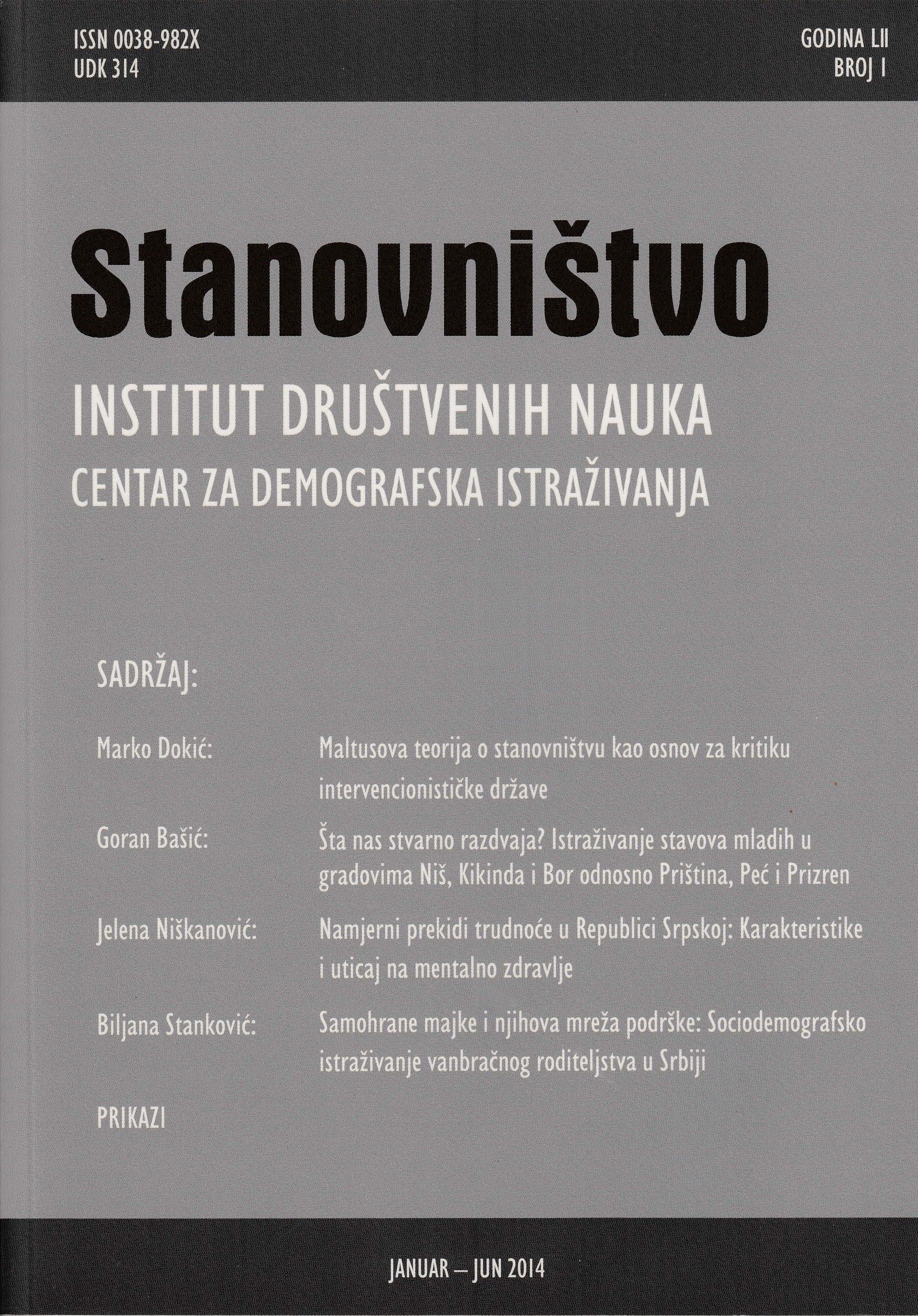Namjerni prekidi trudnoće u Republici Srpskoj: Karakteristike i uticaj na mentalno zdravlje
Induced Abortion in the Republic of Srpska: Characteristics and Impact on Mental Health
Author(s): Jelena NiškanovićSubject(s): Social Sciences, Sociology, Health and medicine and law, Demography and human biology, Social Norms / Social Control
Published by: Институт друштвених наука
Keywords: induced abortion; reproductive health; mental health; conception
Summary/Abstract: Induced abortion is an important aspect of sexual and reproductive health, with potentially negative impact on physical and emotional health of women. The aim of this paper is to investigate the presence of abortion in our society, characteristics of women who had induced abortion and its impact on mental health. The results presented in this paper are part of the bigger study "Health Status, Health Needs and Utilization of Health Services", which was carried out in Republic of Srpska during 2010. Survey covered 1042 women age from 18 to 49. A standardized set of instruments in the field of sexual-reproductive and mental health (NHS, EUROHIS, ECHIM) was applied. Results indicate that 28.8 % of women had induced abortion, while nearly half of them (48.2%) had more than one abortion in their life. Induced abortion is more common among women over 38 years who already have children (97.1%) and live in rural parts of country (61.7%). Abortion is mostly preferred method of birth control among married woman (88.6%), woman with secondary school (64.5%), but is equally present among employed or unemployed woman and housewife's (around 1/3). There was a statistically significant but low correlation between current life satisfaction, mental health and induced abortion (F=8.0, p=0.000; Wilks' lambda =0.97; partial Eta-squared=0.03). More precisely, women who have had abortions have expressed higher levels of stress, lower levels of vitality, and were less satisfied with present life compared to those who did not have an abortion. High rates of induced abortion are present in Balkans countries for a long time (Rašević, 1994: 86; Rašević, 2011: 3). Higher rates of abortion, compared to the European Union and western neighbors, raises the question of presence of "abortion culture" (Rasevic and Sedlecki, 2011: 4). Abortion culture is the conse-quence of frequent use of traditional method of contraception (coitus interruptus) in combination with low availability of counseling and family planning. Lot of scientific rigorous studies indicate a specific connection between abortion and mental health without supporting attitudes which claim that abortion has a strong impact on mental health (Coleman, 2011: 183), as well as attitudes that deny any effect of abortion on mental health (APA, 2008). The results point the importance of promoting greater sexual-reproductive rights, free and responsible family planning and greater availability of contraceptives as safer methods of birth control.
Journal: Stanovništvo
- Issue Year: 52/2014
- Issue No: 1
- Page Range: 37-54
- Page Count: 18
- Language: Serbian

